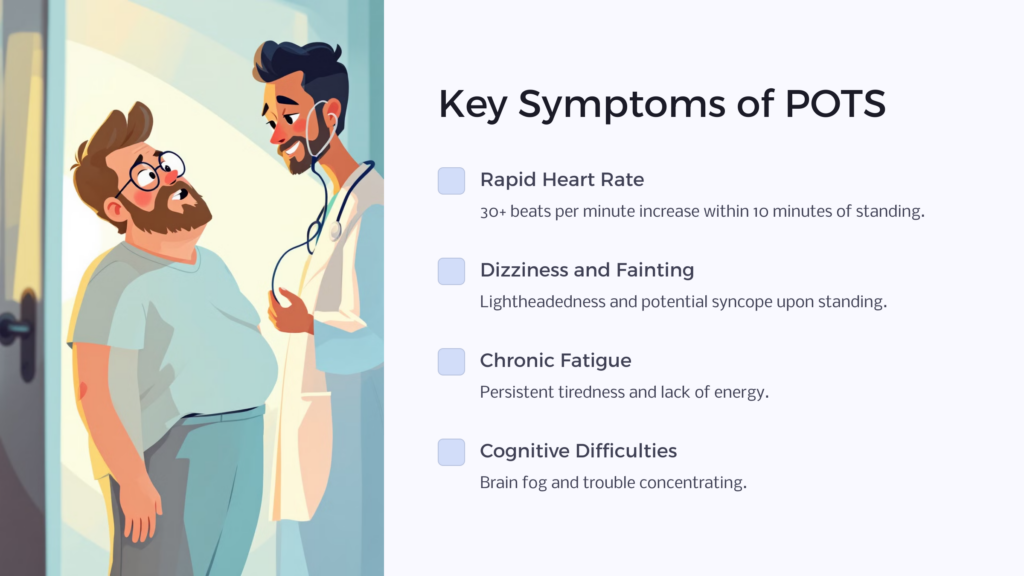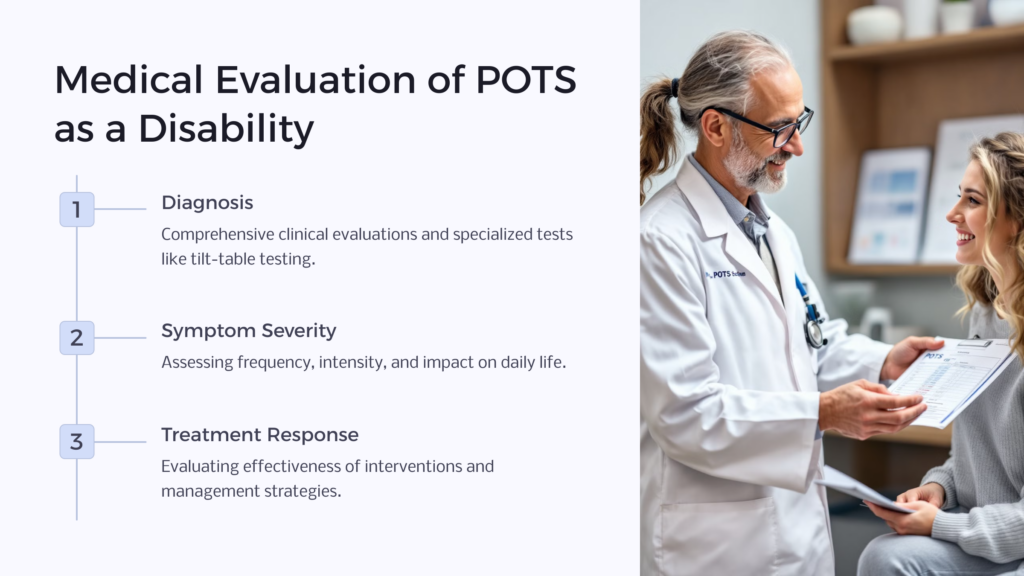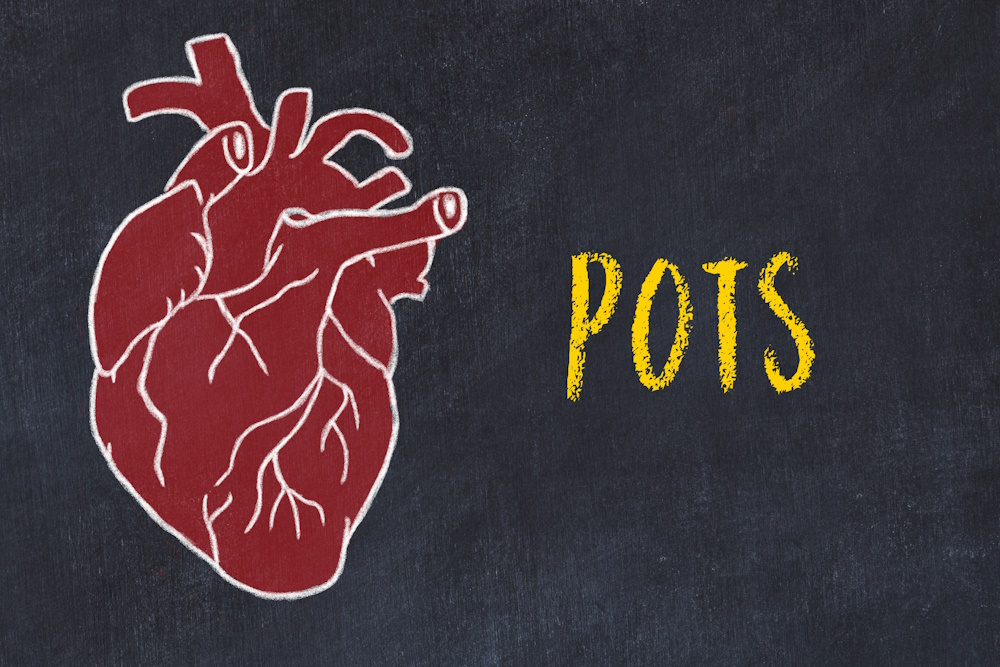What Is POTS?
Postural Orthostatic Tachycardia Syndrome, or POTS, is a complex and often misunderstood autonomic nervous system disorder. It primarily affects a person’s ability to regulate their heart rate and blood pressure when changing positions, such as going from lying down to standing up. While the exact cause of Postural Orthostatic Tachycardia Syndrome is not always clear, it is thought to involve a dysfunction in the autonomic nervous system.

One hallmark symptom of POTS is an excessive increase in heart rate upon standing, typically by 30 beats per minute or more within the first 10 minutes. This rapid heart rate, known as tachycardia, can lead to a range of debilitating symptoms, including dizziness, lightheadedness, and often fainting (syncope). Individuals with POTS may also experience:
- Chronic fatigue
- Brain fog or cognitive difficulties
- Nausea
- Headaches
- Shaky or weak feelings in the limbs
- heart palpitations or irregular heart rhythms
- Sweating abnormalities
It’s important to note that POTS symptoms can vary significantly from person to person, and some individuals may experience additional issues such as gastrointestinal problems or joint pain. Because these symptoms can be disabling and affect a person’s quality of life, understanding the dysautonomic disorder and its impact is crucial for those exploring its potential status as a disability.
Understanding Disability and POTS
To determine whether a POTS diagnosis qualifies as a disability, it’s essential to grasp the concept of disability from both a medical and legal perspective.
From a medical standpoint, a disability is generally defined as a medical condition that significantly impairs an individual’s ability to perform everyday physical activity or participate fully in society. While POTS can indeed have a profound impact on a person’s life, its status as a disability depends on the severity of symptoms and their interference with daily functioning.
Medical professionals evaluate POTS based on factors such as the frequency and intensity of symptoms, the effectiveness of treatments, and the overall quality of life for the individual. It’s crucial to undergo a comprehensive assessment by a healthcare provider experienced in autonomic disorders to determine the extent to which POTS affects the functional capacity of the POTS patient.
Legally, the definition of disability may vary depending on the country, state, or jurisdiction. In many places, disability is defined under laws such as the Americans with Disabilities Act (ADA) in the United States or the Equality Act in the United Kingdom. These laws often protect against discrimination and require reasonable accommodations for individuals with disabilities.
To establish POTS as a disability in a legal context, individuals may need to meet specific criteria outlined in these laws, which can include demonstrating substantial limitations in major life activities or the ability to work. Understanding the legal framework and the requirements for disability status is crucial for individuals with POTS seeking accommodation or a disability benefit.
In the following sections, we will delve deeper into the medical perspectives on POTS as a disability and the legal aspects of applying for a VA disability benefit plan.
Medical Perspectives on POTS as a Disability

Determining whether POTS qualifies as a disability from a medical perspective involves a careful evaluation of the condition’s impact on an individual’s life. While POTS can be a debilitating and invisible illness, it may not automatically be considered a disability in every case. Here, we explore how medical professionals diagnose and assess POTS as a disabling condition.
1. Diagnosis and Evaluation: To establish POTS as a disability, a comprehensive POTS diagnosis is essential. Medical professionals typically use a combination of clinical evaluations and specialized tests, such as tilt-table testing or autonomic function testing, to confirm the presence of POTS in the patient. These tests help assess the extent of dysautonomia and the severity of symptoms.
2. Symptom Severity: The severity of POTS symptoms plays a crucial role in determining POTS disability status. Medical experts consider factors such as the frequency and intensity of symptoms, the duration of symptoms, and their impact on an individual’s daily life. Severe symptoms that significantly impair a person’s ability to work, study, or carry out essential activities are more likely to support a POTS disability claim.
3. Response to Treatment: The effectiveness of treatments and interventions for POTS is another consideration. If POTS symptoms respond well to treatment and an individual can manage their condition effectively, it may be less likely to be considered a disability. However, in cases where treatments are ineffective or have limited success, the condition may be more likely to qualify as a disability.
It’s important to note that medical opinions may vary, and individuals with POTS should seek guidance from healthcare providers experienced in autonomic disorders. Additionally, a formal diagnosis and thorough medical record are often necessary when applying for disability benefits or accommodations.
Legal Aspects: Applying for Disability Benefits

Navigating the legal landscape regarding disability benefits for individuals with POTS can be complex, but it is essential for those who require assistance due to their condition. Here, we explore the key legal aspects and steps involved in applying for disability benefits related to POTS.
1. Know the Legal Framework: Understanding the legal framework governing disability benefits in your country or region is the first step. In the United States, for example, the Social Security Administration (SSA) administers disability programs, including Social Security Disability Insurance (SSDI) and Supplemental Security Income (SSI). Research the specific requirements and criteria for disability benefits in your jurisdiction.
2. Gather Medical Documentation: Comprehensive medical documentation is crucial when applying for disability benefits related to POTS. This documentation should include a formal diagnosis, detailed records of symptoms, test results, and treatment history. These records will serve as evidence of the severity and impact of your condition on daily life.
3. Consult with Healthcare Professionals: Seek guidance from healthcare professionals experienced in treating POTS. They can provide expert opinions and support your disability claim by explaining how your condition impairs your ability to work or perform daily activities.
4. Start the Application Process: Initiate the application process for disability benefits according to your country’s regulations. This may involve completing forms, providing documentation, and adhering to specific deadlines. Some countries require a waiting period before benefits become available.
5. Appeal If Necessary: It’s common for disability claims to be initially denied. If your claim is denied, don’t lose hope. Most jurisdictions provide an appeals process, allowing you to present additional evidence or request a reconsideration of your case.
Navigating the legal aspects of disability benefits can be challenging, but with proper preparation and documentation, individuals with POTS can increase their chances of receiving the support they need.
How Can Benefits.com Help Me?
Benefits.com is dedicated to helping veterans navigate the disability benefits process and can be an invaluable resource for veterans with disabilities:
- Expert Guidance: Benefits.com provides expert advice on eligibility criteria, documentation requirements, and the application process specific to POTS-related disabilities.
- Documentation Support: Assist in gathering and organizing crucial medical documentation, ensuring that it aligns with the legal standards for disability claims.
- Appeals Assistance: In case of denials, Benefits.com can help with the appeals process, advocating for your rights and strengthening your case.
- Reduced Stress: Support can significantly reduce the stress and complexity of navigating the often overwhelming disability benefits system.
By partnering with Benefits.com, individuals with POTS can increase their chances of a successful disability benefits application, ultimately helping them access the necessary support and resources to manage their condition effectively.
 Benefits.com Advisors
Benefits.com Advisors
With expertise spanning local, state, and federal benefit programs, our team is dedicated to guiding individuals towards the perfect program tailored to their unique circumstances.
Rise to the top with Peak Benefits!
Join our Peak Benefits Newsletter for the latest news, resources, and offers on all things government benefits.




















